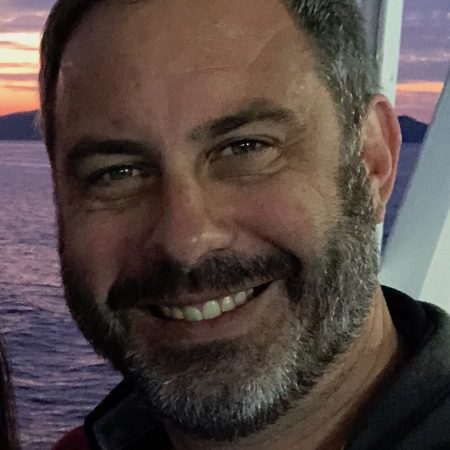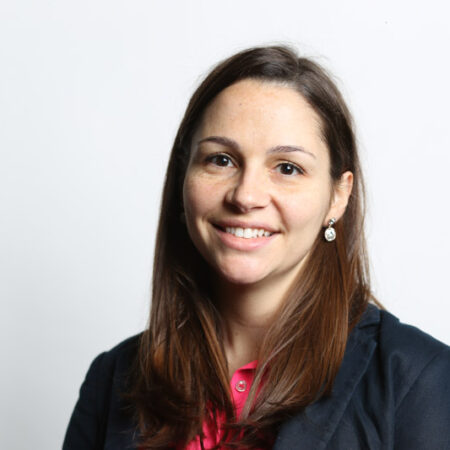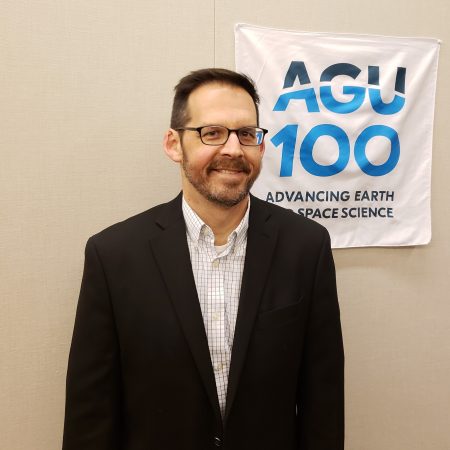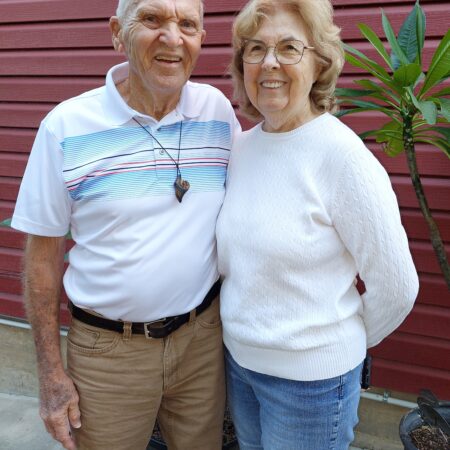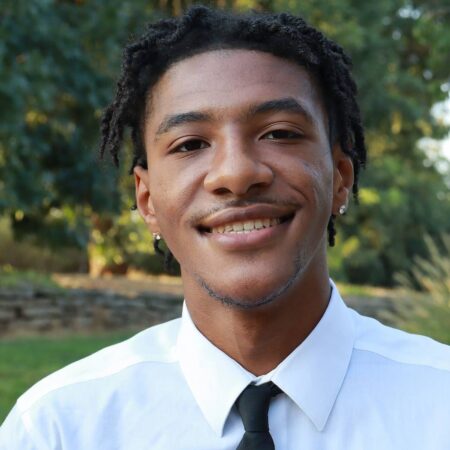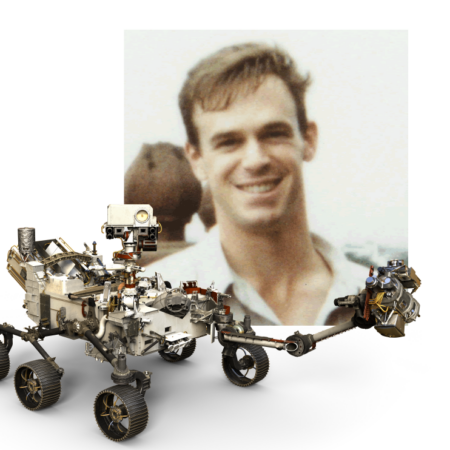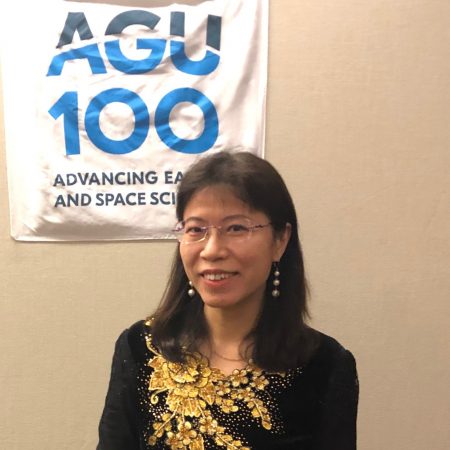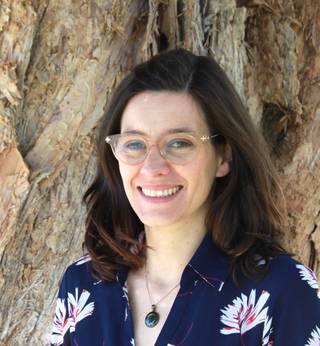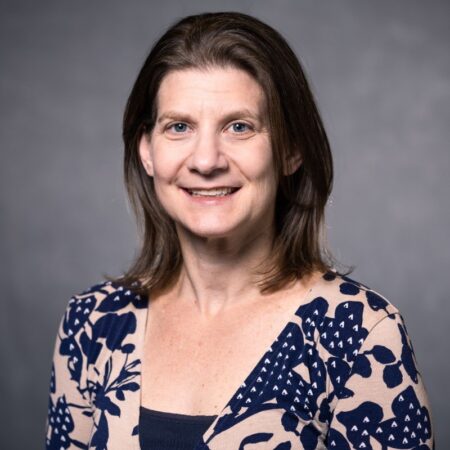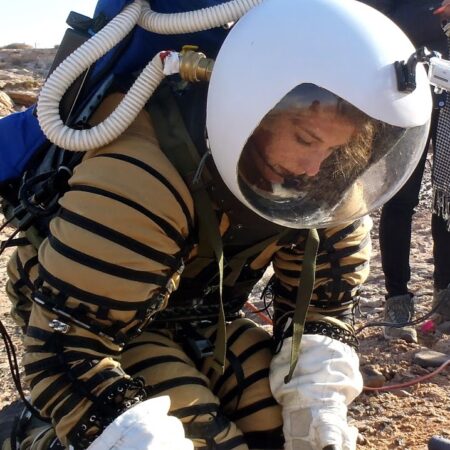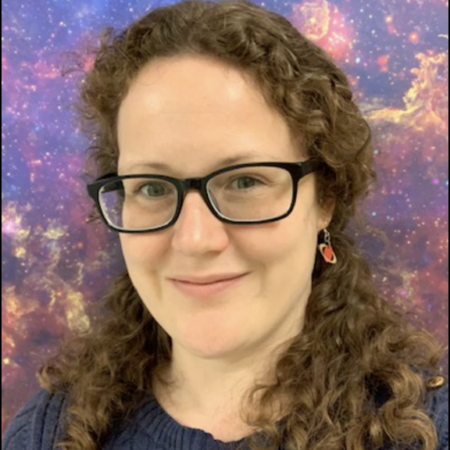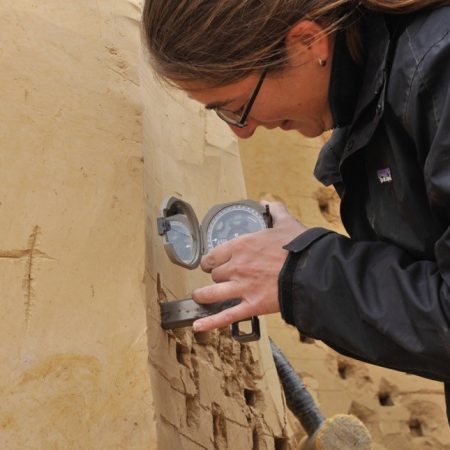Refine
Date Range Clear
Recorded by Clear
Keywords Clear
- #pollution 170
- #womeninscience 48
- atmospheric science 170
- NASA 170
- #AGU100 113
- #AGU 99
- discovery 55
- AGU 32
- 700 more
Partnerships Clear
Organizations Clear
Places Clear
Languages Clear
Initiatives Clear
Jeremy Werdell, an Oceanographer in the Ocean Ecology Laboratory at NASA Goddard Space Flight Center, discusses his lifelong passion for studying the ocean, which started with a school field trip to a marine biology lab. He describes how happening to...
We won’t say how long Susan Lozier has been shaping young minds at Duke University (she may let it slip), but she talks about amazing changes that have happened during her tenure. She grew up wondering how rivers get polluted,...
In this inspiring interview, Becca Barnes, Bianca Rodriguez-Cardona, Evelyn Valdez-Ward, and Ben Sulman, four early-career biogeoscientists come together to share their reflections on what it means to be a scientist today. How can scientific knowledge be spread on social media?...
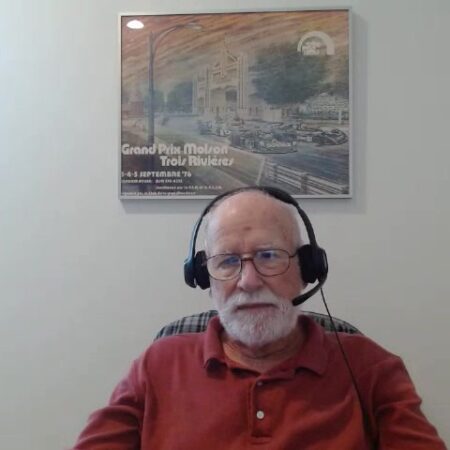
One Small Step conversation partners Jim Brown (75) and Paul Anderson (78) have a conversation about their backgrounds, losses in life, political views, education, the environment, and meeting up in the future for a beer. They find common ground despite...
Steven Pawson, Chief of the Global Modeling and Assimilation Office at NASA Goddard Space Flight Center, shares his experiences working on atmospheric and Earth systems science, including interactions between the Ozone Layer and climate change, and predicting air quality for...
Dr. Alex Lockwood is the project scientist on the science communication team for the James Webb Space Telescope at the Space Telescope Science Institute. While earning her Ph.D. in Planetary Astronomy and Science, Alex had the unique opportunity to star...
Lawrence Friedl discusses his life and experiences as Director of the Applied Sciences Program in the Earth Science Division at NASA Headquarters. Interested in space from a young age, he developed an interest in how the environment and public policy...
Multi-talented Korean War Veteran and artist also worked on the first lunar module to land on the Moon. Interview 1 of 3. Jim Ingham and his family are talented singers, he is also proficient in playing the bagpipes and Native...
Paul Newman, Chief Scientist for Earth Science at NASA Goddard Space Flight Center and the co-chair to the Montreal Protocol, is one of the planet’s top ozone watchdogs – a self-described detective who looks for any chemicals which may deplete...
David Crisp, senior research scientist at NASA, recounted his adventures, from going from a physics education major who had a paper on Venus winds published by Carl Sagan to a doctoral student at Princeton to helping fix Hubble. He described...
Jonathan Hale is one of 25 students in the new Student Airborne Science Activation (SaSa) program at the NASA Ames Research Center. Students at SaSa are undergraduates from minority-serving institutions, competitively selected across the United States. Over the course of...
Imagine this upbringing: only child, suburbs of Maryland, daughter of a mathematician and a pastry chef. If you guessed that child would achieve a management role with NASA’s famed IceBridge2 mission, congratulations, you truly have exceptional foresight. Linette Boisvert McPartland...
Adrian Brown is the deputy scientist on the Mars 2020 Rover mission at NASA Headquarters in Washington, D.C.. Adrian uses his background in geology to explore Mars via the Mars Rover, living out his childhood fascination with the planets. He...
Mei Zheng studies and teaches atmospheric science at Peking University. She’s passionate about training the next generation of scientists, and ensuring that everyone has access to clean air. “A teacher’s job is to encourage, inspire, and challenge students to do...
Dr. Ella Sciamma-O’Brien is a research scientist in laboratory astrophysics and planetary science. As a member of the Astrophysics and Astrochemistry Laboratory at NASA Ames Research Center, Dr. Sciamma-O’Brien has been working on the Titan Haze Simulation (THS) experiment, developed on the...
Allison Leidner is a program manager for Energy and Infrastructure applications at NASA’s Earth Science Division where she helps inform and connect decision-makers with the science behind renewable energy and climate resilient infrastructure. A conservation biologist by training, Allison recently...
Dr. Mary Beth Wilhelm is a research space scientist at NASA Ames Research Centre. In this interview, Mary Beth talks about lab hopping, visiting five continents in five months, winning the Ames Early Career Researcher Award, and her hopes for...
In begin in 1979, when Margaret Kivelson, UCLA, was part one of three women presenting a talk in which Fran Bagenal, University of Colorado Boulder, was sitting in the audience. They have been space scientists and collaborators for many years...
Rebekah Hounsell is a connoisseur of explosions, and she spends her time helping scientists get the most out of TESS, NASA’s Transiting Exoplanet Survey Satellite mission. She also dabbles in helping to design surveys for the upcoming Nancy Grace Roman...
Emily Schaller, project manager at NASA's National Suborbital Research Center at Ames, discusses her Ph.D. work studying the clouds on Titan and her work as a science and education. She recalled how as a young child, she would study illustrations...
France Lagroix, Research Scientist at Institut de Physique du Globe de Paris and AGU Leader share stories of her passion and the value of paleomagnetism. She talks of the discovery during her Ph'd research where she developed a novel application...

Rhoda Justice Garcia (72) talks with her friend Candyce Bennett (68) about childhood memories of growing up during the time of the NASA space program, living at Cocoa Beach, near Patrick's Airforce Base, and Satelite Beach.
After being drawn to the oceans at an early age, Paula continues to examine many factors that influence changes in the oceans. As a program manager for NASA, she enjoys the opportunity to work with dedicated researchers and learn how...
Dr. Diana Gentry, a research scientist at NASA Ames Research Center, studies aerobiology (microbes in clouds), biodiversity, biomaterials, and biological systems. Diana describes herself as at the nexus of both science and engineering where she speaks both languages and translates...
